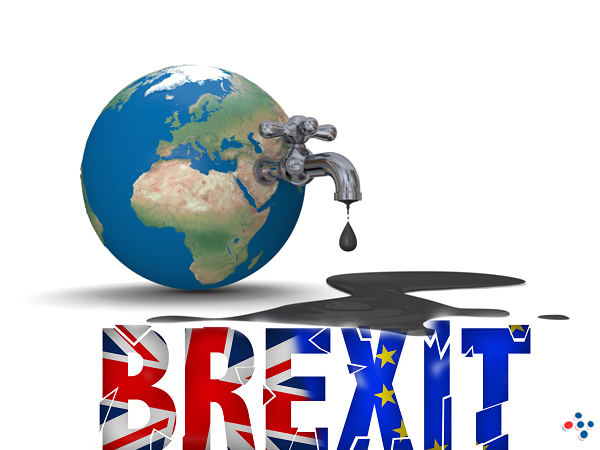
Brexit poses threat to emergency oil stock system: fuel lobby group


The group, which represents UK refiners and fuel suppliers, told S&P Global Platts it had "serious concerns" after the government warned in a "guidance note" on September 13 that the country's scheduled withdrawal from the EU on March 29, 2019 could mean an end to 'ticketing' arrangements by which the industry holds some of the emergency stock obligation in other EU countries.
Emergency or 'strategic' stocks are seen as a buffer against disruptions to oil supply, and the UK is part of stock holding arrangements with both the EU and the International Energy Agency. Unlike in the US, however, the UK devolves its stock holding obligations to the private sector. A proportion can be held outside the country and companies buy and sell 'tickets' guaranteeing the availability of stocks. Under its EU membership, UK overseas stocks must be held within the bloc.
In emailed comments, UKPIA said any bar on holding stocks overseas as a result of Brexit "will not be as efficient and will impact some companies' ability to meet the obligations through no fault of their own."
"UKPIA and its members have serious concerns about the potential loss of flexibility if cross-border ticketing is no longer possible, which was flagged up in the government's own Technical Notice."
The government's guidance said that after Brexit the UK's emergency stock obligation could be less onerous, in theory reducing costs, a point acknowledged by UKPIA. The EU's stock holding obligations are higher than those obligated by the IEA and more complex, requiring that a third of stocks are held as specific oil products. It is not clear EU states would refuse to hold compulsory stocks for the UK. But if mutual arrangements come to an end, UK storage sites may be insufficient to hold all the country's stock obligations.
The UK is obliged by the EU to hold the equivalent of 61 days of oil consumption, roughly equal to 11 million mt or 80 million barrels, but under the IEA rules it will be obliged to hold the equivalent to 90 days of net imports, recently equivalent to around 6 million mt.
As of the end of 2016, more than a quarter of the UK's stocks obligation under EU rules were held in other EU countries, mainly the Netherlands and Belgium.
UKPIA reiterated calls to create a centralized stock holding agency rather than the current piecemeal approach, something that has met opposition on cost grounds. The government "should consider holding compulsory stocks through a centralized (ideally government) stocking entity as many other countries already do," it said.
REFINERY DISCONTENT
Separately, UK refiner Essar Oil, which operates the 205,500 b/d Stanlow refinery in northwest England, said it did not foresee any issues meeting its share of stock obligations, but voiced discontent that the system places a greater burden on refiners than on fuel importers, and echoed the calls for a dedicated stock holding agency.
"Essar has always maintained there should be a level playing field in the UK and that the Compulsory Stocking Obligations placed upon refiners and importers should be the same," Essar Oil UK said in emailed comments.
Essar was part of an industry working group that presented "detailed" proposals for the creation of a UK stockholding agency, and "although the Government has not done so, the downstream oil industry still advocates a centralized agency would be a fairer, more efficient and cost effective means of managing this national obligation," it said.
Last week's note from the government said it would aim to strike new international agreements to underpin overseas stock holdings, and would communicate specific obligations to refiners and large importers in the first quarter after Brexit.


Trump weighs using $2 billion in CHIPS Act funding for critical minerals

Codelco cuts 2025 copper forecast after El Teniente mine collapse

Electra converts debt, launches $30M raise to jumpstart stalled cobalt refinery

Barrick’s Reko Diq in line for $410M ADB backing

Abcourt readies Sleeping Giant mill to pour first gold since 2014

Nevada army depot to serve as base for first US strategic minerals stockpile

SQM boosts lithium supply plans as prices flick higher

Viridis unveils 200Mt initial reserve for Brazil rare earth project

Tailings could meet much of US critical mineral demand – study

Kyrgyzstan kicks off underground gold mining at Kumtor

Kyrgyzstan kicks off underground gold mining at Kumtor

KoBold Metals granted lithium exploration rights in Congo

Freeport Indonesia to wrap up Gresik plant repairs by early September

Energy Fuels soars on Vulcan Elements partnership

Northern Dynasty sticks to proposal in battle to lift Pebble mine veto

Giustra-backed mining firm teams up with informal miners in Colombia

Critical Metals signs agreement to supply rare earth to US government-funded facility

China extends rare earth controls to imported material

Galan Lithium proceeds with $13M financing for Argentina project

Kyrgyzstan kicks off underground gold mining at Kumtor

Freeport Indonesia to wrap up Gresik plant repairs by early September

Energy Fuels soars on Vulcan Elements partnership

Northern Dynasty sticks to proposal in battle to lift Pebble mine veto

Giustra-backed mining firm teams up with informal miners in Colombia

Critical Metals signs agreement to supply rare earth to US government-funded facility

China extends rare earth controls to imported material

Galan Lithium proceeds with $13M financing for Argentina project

Silver price touches $39 as market weighs rate cut outlook

















